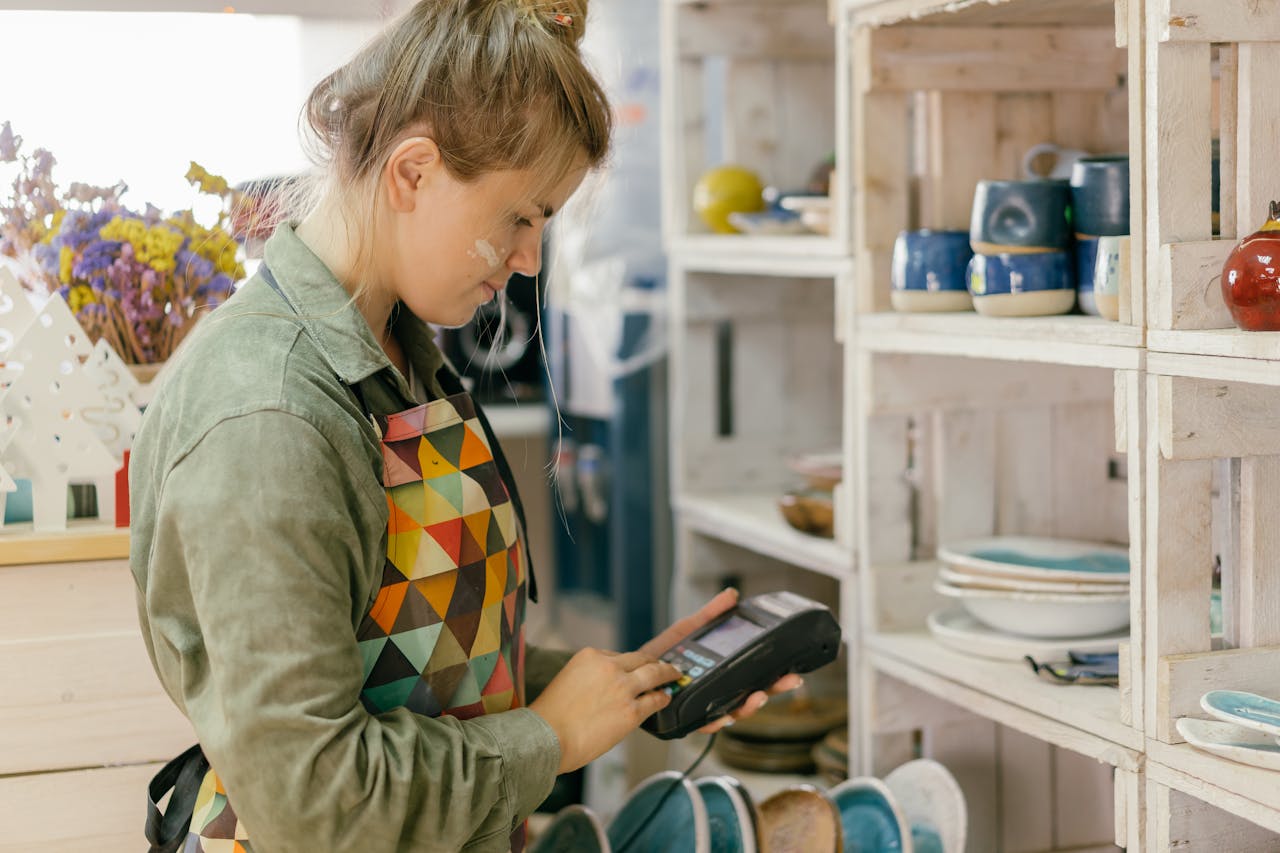
By Bella Zhang December 13, 2024
In the current competitive environment, small bakeries require more than simply tasty goodies to remain ahead. Payment processors are essential for facilitating seamless transactions, improving customer satisfaction, and optimizing operations. This detailed guide is designed to assist small bakery owners in selecting the most suitable payment solutions that meet their specific requirements.
Why Payment Processors Matter for Small Bakeries
Handling transactions efficiently is vital for small bakeries. With high volumes of small purchases during peak rush hours, reliable payment processors are essential. They not only prevent bottlenecks but also enhance the overall customer experience. In today’s cashless society, customers expect bakeries to offer multiple payment options, including credit cards, mobile wallets, and contactless payments.
Additionally, safety is a primary concern. An effective payment processor guarantees adherence to industry regulations, securing customer information and shielding your business from fraudulent activities. The right system simplifies tasks, minimizing the time required to handle transactions and enabling bakers to concentrate on their expertise—making great baked items.
Key Features to Look for in a Payment Processor
When choosing a payment processor, it’s important to consider several key features:
Ease of Use: A user-friendly interface is crucial, especially for small bakery teams that may not have dedicated IT staff. The system should be intuitive and easy to set up.
Compatibility: Ensure the processor integrates seamlessly with your existing POS system, accounting software, and online ordering platform.
Mobile Payment Support: Mobile wallets like Apple Pay and Google Pay are increasingly popular. A processor that supports these options can appeal to tech-savvy customers.
Affordable Pricing: Look for a processor with transparent pricing. Understand the transaction fees, monthly charges, and any hidden costs before committing.
Security: Choose a processor that complies with PCI DSS standards and offers fraud prevention features.
Customer Support: Reliable customer support is essential for resolving issues quickly. Look for 24/7 availability and positive reviews.

Top Payment Processors for Small Bakeries
With so many options on the market, finding the best payment processor can be overwhelming. Here are six top choices tailored for small bakeries:
Square: Square is a favorite among small business owners for its simplicity and versatility. Its POS system is easy to use, and the transparent pricing structure makes it an excellent choice for small bakeries. Square also offers hardware options, such as card readers and terminals, and supports online and in-store payments.
PayPal Zettle: PayPal Zettle is a great choice for bakeries looking for flexibility. It provides mobile and in-person payment options and integrates effortlessly with PayPal’s web payment system. The equipment is inexpensive, and the system is simple to configure.
Toast: Toast is specifically designed for foodservice businesses, making it a strong contender for bakeries. Its features include POS functionality, online ordering, and inventory management. Toast’s robust reporting tools help bakery owners make informed decisions about their business operations.
Shopify POS: Ideal for bakeries with an online presence, Shopify POS integrates seamlessly with its e-commerce platform. This processor ensures inventory synchronization across online and physical stores, providing a unified view of your sales.
Clover: Clover’s flexible POS systems suit different sizes of businesses. It provides various hardware choices, including portable card readers and countertop devices. Clover’s app marketplace enables you to incorporate functionalities such as employee scheduling and customer loyalty initiatives.
Stripe: Stripe is perfect for bakeries with a strong online focus. It excels in processing online payments and supports subscription-based services, making it an excellent choice for bakeries offering delivery boxes or regular orders.
How Payment Processors Support Customer Loyalty
Customer loyalty is a significant factor in the success of small bakeries. Many payment processors offer integrated loyalty programs that help retain customers. For instance, Clover allows bakery owners to create rewards programs that encourage repeat purchases. These programs often involve tracking customer spending and offering discounts or free items as incentives. Loyalty programs not only boost customer retention but also improve the overall customer experience, creating a positive perception of your bakery.
The Role of Analytics in Payment Processing
Contemporary payment processors offer comprehensive analytics and reporting features. These attributes enable bakery proprietors to track sales patterns, recognize busy hours, and pinpoint favored items. For instance, Toast’s reporting features enable you to evaluate your bakery’s performance and make well-informed choices regarding inventory management, staffing, and marketing tactics. Analytics enable bakeries to enhance their operations and increase profits.
Understanding Costs and Pricing Structures
Payment processors come with varying costs, and understanding these is crucial for small bakery owners. Common expenses include:
Transaction Fees: Typically, these range from 2.5% to 3% per transaction. Some processors offer volume-based discounts for high sales volumes.
Hardware Costs: Depending on your setup, you may need to purchase card readers, terminals, or other POS equipment.
Monthly Fees: Some processors charge a flat monthly fee for access to advanced features or dedicated support.
Hidden Costs: Be aware of potential fees for chargebacks, account setup, or contract termination.
Conducting a cost-benefit analysis can help you select a processor that provides value without exceeding your budget.
Integration with Bakery Operations
A well-chosen payment processor doesn’t just handle transactions—it integrates seamlessly with your bakery’s daily operations. Many processors offer features that connect with inventory management systems, helping you track stock levels and reduce wastage. For example, integrating with accounting software like QuickBooks simplifies financial reporting and tax preparation.
Online ordering systems represent another essential integration. With an increasing number of customers choosing digital solutions, a payment processor that facilitates online payments and delivery management can provide your bakery with a competitive advantage. These integrations conserve time, minimize mistakes, and boost overall effectiveness.
Common Pitfalls to Avoid
Choosing a payment processor is a significant decision, and avoiding common pitfalls is essential. One mistake is focusing solely on cost. While affordability is important, an overly cheap processor may lack the features or reliability your bakery needs. Hidden fees can also be a problem, so always read the fine print.
A frequent mistake is neglecting customer assistance. A processor lacking adequate support can leave you in a difficult situation during crucial times, like peak periods or system failures. Ultimately, neglecting to take scalability into account can result in difficulties as your bakery expands. Select a processor that can adapt alongside your business requirements.

Implementing and Transitioning to a New System
Switching to a new payment processor requires careful planning to ensure a smooth transition. Begin by researching options and testing the system to confirm it meets your needs. Train your staff thoroughly to minimize disruptions and enhance their confidence in using the new system.
Schedule the transition during a slow period to reduce customer impact. Once the system is live, monitor its performance and gather feedback from both employees and customers. Use this feedback to make any necessary adjustments and refine your processes.
Additional Features to Consider
Certain payment processors provide extra functionalities that can enhance overall worth significantly. As an example, loyalty initiatives promote repeat transactions by incentivizing customers for regular buying. Customization features enable you to adjust the system according to your bakery’s unique requirements, like providing seasonal offers or grouping products together.
Detailed reporting features are another valuable addition. These tools provide insights into customer behavior, sales trends, and peak transaction times, helping you make informed business decisions. By leveraging these features, you can optimize your operations and boost profitability.
Conclusion
Selecting the right payment processor is a vital decision for small bakeries. The ideal system not only simplifies transactions but also enhances customer satisfaction and supports operational growth. Options like Square, Toast, and Stripe provide reliable and feature-rich solutions tailored to the needs of small businesses.
When assessing processors, pay attention to essential elements like cost efficiency, integration capacity, and scalability. Steer clear of typical mistakes by diligently exploring choices and valuing customer support and dependability. By selecting the appropriate payment processor, your bakery can enhance efficiency, satisfy customers, and pave the way for lasting success. Begin examining your possibilities today to take your bakery to the next level!